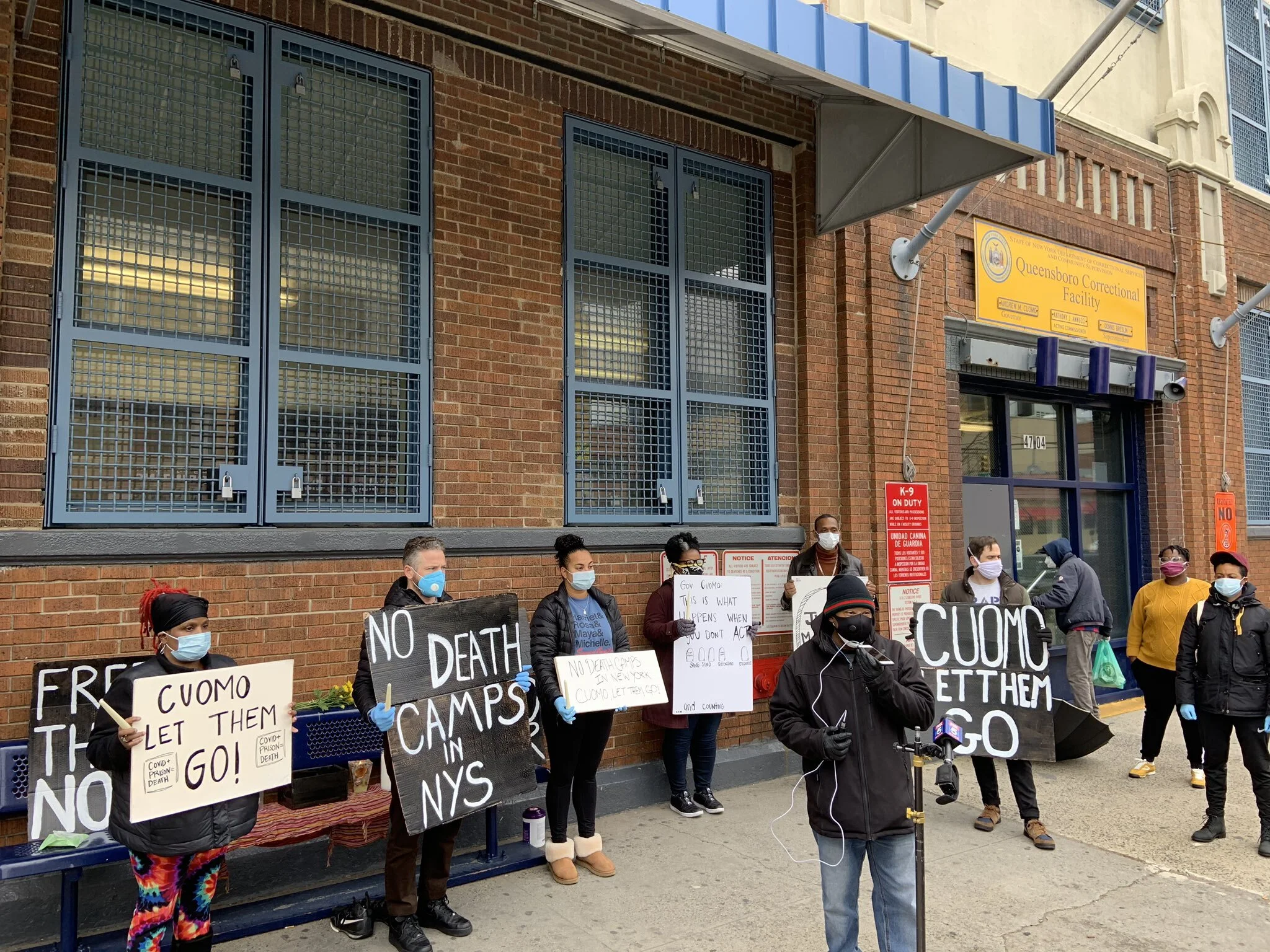Activists push for parole for elderly inmates
/The People’s Campaign for Parole Justice is urging lawmakers to pass two bills that would grant more elderly incarcerated people a shot at parole. Photo courtesy of the People’s Campaign for Parole Justice
By Jacob Kaye
Lawmakers and advocates called for the passage of two bills in the state legislature aimed at allowing older incarcerated people a fair shot at parole last week.
Joined by Assemblyman Ron Kim, the People’s Campaign for Parole Justice urged lawmakers to pass the Elder Parole and the Fair and Timely Parole bills, both of which would give incarcerated people, especially those who have served over a decade behind bars, better access to parole hearings.
“It ultimately comes down to saving lives,” said Mark Shervington, the Queens organizer with Releasing Elderdly People in Prison, one of the organizations involved with the campaign. “We’re trying to right some wrongs and some historic injustices, like the draconian sentencing laws rooted in white supremacy.”
The Elder Parole bill, which is currently in committee in both the Assembly and Senate, would allow for people aged 55 and older and who have already served for 15 or more years to receive an evaluation from the State Board. The evaluation, which would focus more on who the person was at the moment, and less on the crime they committed, would look at the person’s potential for parole release.
Among the bill’s co-sponsors are Queens legislators Catalina Cruz and Jeffrion Aubry.
Similarly, the Fair and Timely Parole bill, which has passed committee in the Senate and is awaiting a vote on the floor and is in committee in the Assembly, would alter parole reviews and require a more holistic view of who a person has become while incarcerated.
Around one-quarter of the approximately 9,000 people serving life sentences in New York are above the age of 50.
Advocates with the People’s Campaign for Parol Justice, a campaign of over 300 organizations across the state, say offering a meaningful shot at parole to incarcerated people is both the humane and fiscally responsible thing to do.
“Particularly, in this age of coronavirus which is running rampant through the prison system, passing these bills would be very helpful in saving lives,” said Shervington, who appeared before a parole board nine times before being paroled in 2015.
Organizers say the bill would address both racial injustices and injustices to the elderly.
Black incarcerated people and incarcerated people of color are far less likely on average to be released on parole, when compared to their white counterparts, according to data collected by the Times Union.
In addition to racial issues, the prison system is ill equipped to care for elderly inmates, who often age faster physically in prison than they would outside of prison.
“Prisons are the worst places to take care of an aging population,” said Alan Cohen, the chief program officer for congregate, care and behavioral services at JASA, an organization involved in the campaign. “Their staff don’t understand the needs of older people, they don’t understand how to address chronic medical problems.”
But the bills – which would likely free some of the incarcerated people who are statistically some of the least likely to commit crimes upon their release – would also go a long way financially.
“If the state were to pass these bills right now it would save $522 million annually in taxpayer money and billions over a decade,” Shervington said. “The money could be used more effectively in addressing conditions in the community where most of the incarcerated people come from.”
The push to pass the bills also stems from a broken parole system, according to Shervington.
“The parole release process [is] plagued with racial bias that basically functions to punish and resend, rather than to acknowledge change and transformation, which is actually the parole board’s function,” he said.
The campaign is also calling on Gov. Andrew Cuomo to alter the staffing of the state’s Parole Board, which currently has three vacancies. The activists are requesting that the board's 19 commissioners be from communities that have been directly affected by mass incarceration or who have professional experience in social work, nursing, reentry services or other similar fields.
Assemblymember Ron Kim, who chairs the Aging Committee, said the time to pass the bills is now.
“We’re at a point when there is absolutely no ethical, good, or moral argument to defend the status quo of keeping our older adults in prison when they pose no threat whatsoever to our society,” Kim said. “Simply put, we must make a choice: continue to spend money to dehumanize people, particularly Black and brown men, or invest in people and recognize that we as a society failed them.”
And the organizers of the campaign are becoming increasingly confident, though with reservation, that the bills will be passed.
“I’m very hopeful,” Shervington said. “With or without opposition, I believe we will get it done. It’s time for justice – it’s the right thing to do and there’s no logical reason why these common sense, life-changing, life-saving bills will not pass.”




